Colby E. “Babe” Slater
Veteran. Captain. Aggie.
“Babe” was the baby of his family. Colby E. “Babe” Slater, was born on April 30, 1896 in Berkeley to Louise and John Slater, joining two older brothers and a sister.
Babe and his older brother Norman attended Berkeley High School, and played together on the 1912 “Yellowjacket” team that won the California Rugby State Championship by defeating Los Angeles High School in Los Angeles.
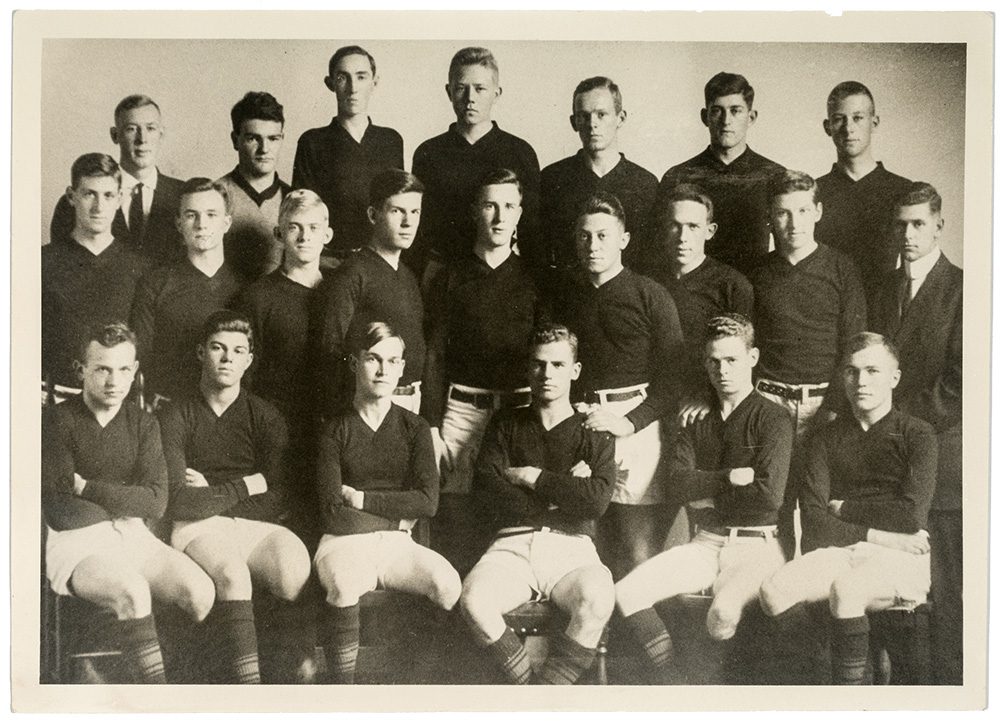
In 1914, Babe Slater enrolled at the University Farm School in Davis (now the University of California, Davis). The University Farm School, a branch of the University of California’s College of Agriculture, offered a three-year course in agriculture. While at the University Farm School, Slater starred in football, basketball, and baseball. He served as basketball team captain, junior class president, house manager for the Calpha Fraternity, Picnic Day Parade Chairman and Picnic Day General Chairman.
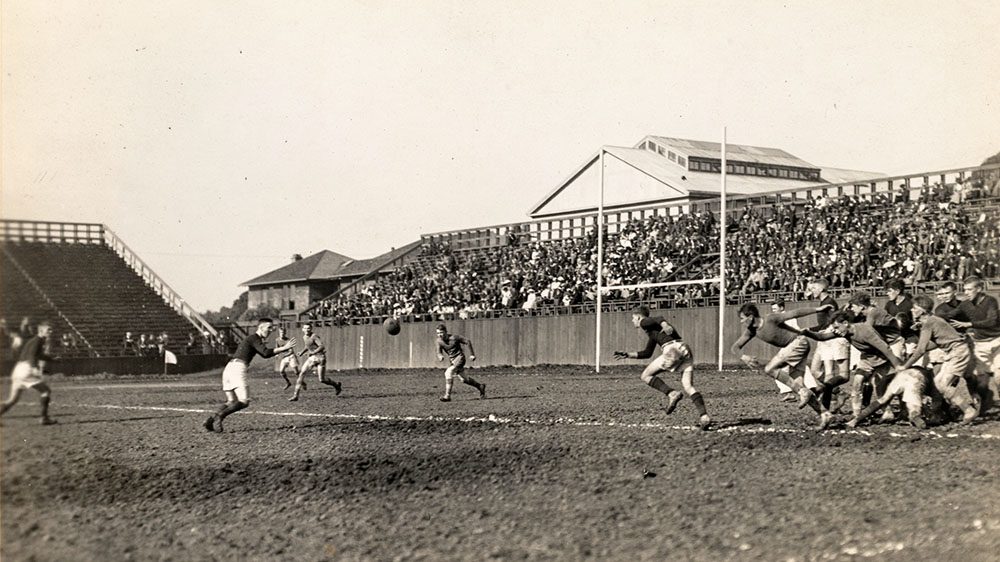
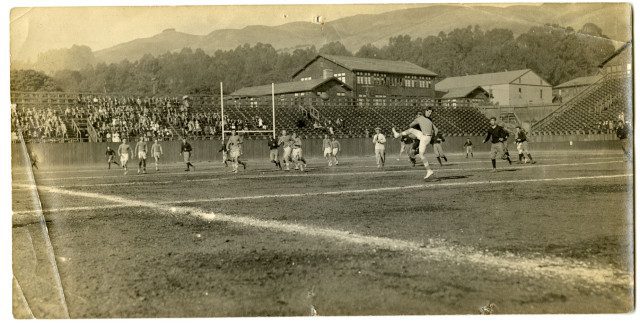
Just a month after graduating from the University Farm School in May of 1917, Slater registered for the draft. Three months later, he joined the army during the First World War, serving with the medical corps in France.
By October of 1918, Slater’s company was moving through Belgium where he noted that they passed by “nothing but devastated country – worse than the imagination could ever stretch it. For miles and miles all that could be seen was torn-up ground that resembled a choppy sea with great tanglements of barbed wire and railroad tracks.”
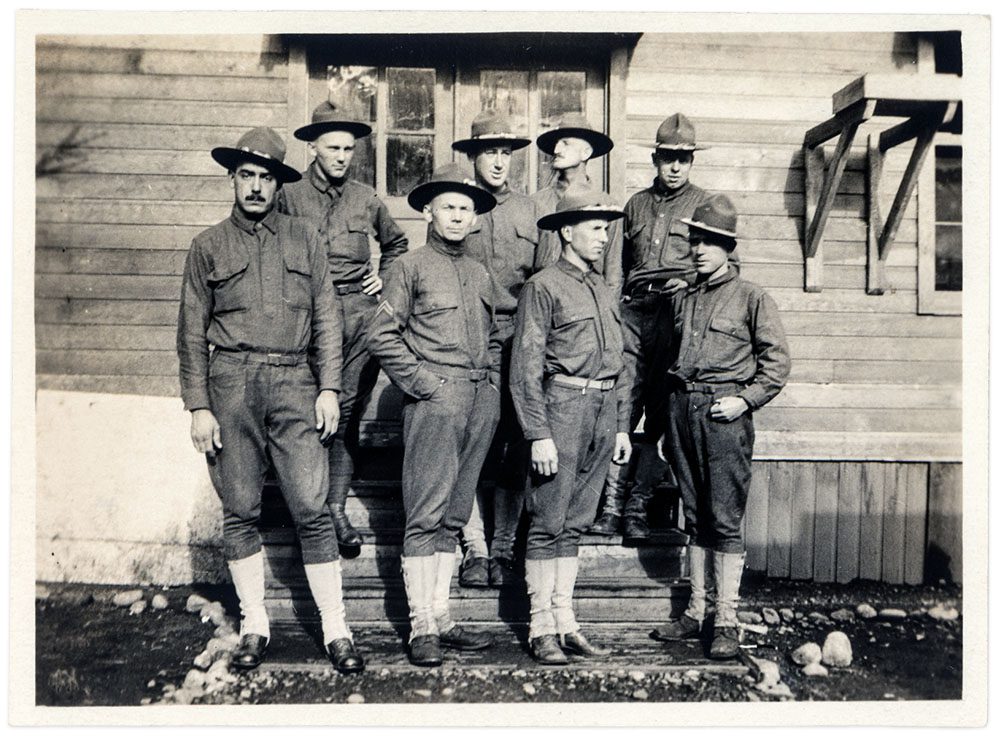
By 1919, the war ended and so did Slater’s military service. He was only 23 years old and he had spent three years completing a rigorous agriculture program at the University Farm School, then two years defending his country in a world war; finally he was able to come home and farm.
Just a few months later though, his country came calling again. He was again asked to head to Europe, but this time it was to play rugby, the game he adored from his early days.
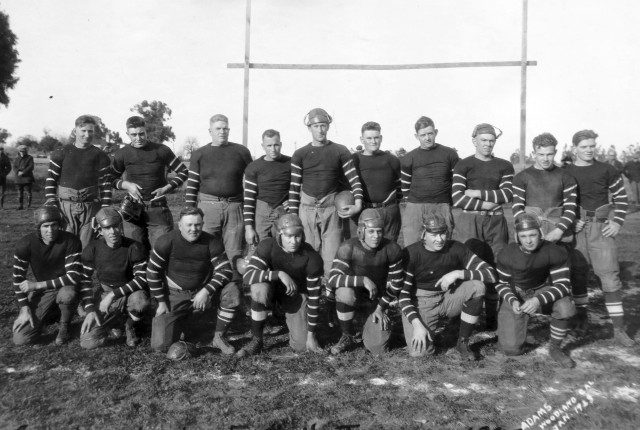
Of course, he said yes. Slater would be there to help clinch the surprise 1920 gold medal win and then lead the 1924 team to victory as well. Babe Slater – UC Davis Aggie, U.S. veteran and U.S. Olympic captain – served his country so remarkably well.
“He was very kind, thoughtful, humble with a lot of ability, and he was very certain of the life that he wanted to live. He was successful as a farmer, very successful, and he helped start the volunteer fire department in Clarksburg, and he was popular in that area, and elected president of Farm Bureau and those types of things. So he was somebody that attracted people and his attitude and demeanor was very friendly and very popular.
In fact, as he was preparing for the 1924 Olympics, the city of Woodland started a drive to raise funds for Babe, and I think the limit was 50 cents a donation, and that ended up very successful and they bought luggage and other types of things that are listed here in the collection, and even some of the children in schools put in a penny or five cents, or that type of deal. So he was adored really by many people.”
Dick McCapes, son-in-law of Babe Slater
“Ballroom dancing is a contact sport. Rugby is a collision sport.”
Heyneke Meyer, Bulls Coach